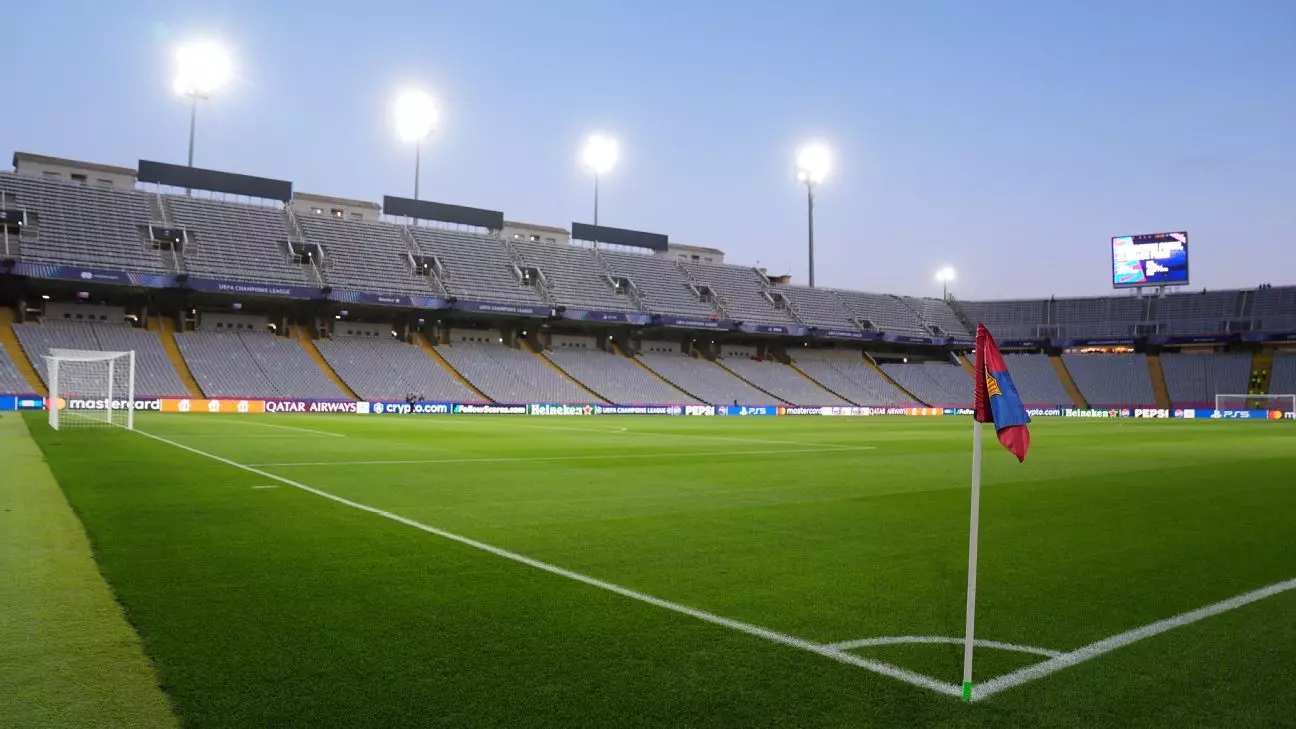In recent weeks, tensions have escalated between the board of FC Barcelona and its devoted fanbase, culminating in the exclusion of a key supporters’ group from the Olympic Stadium. This turmoil has prompted a vehement response from the Espai d’Animació (EDA), a collective of passionate fans who have been a cornerstone of the club’s atmosphere. Their protests raise critical questions regarding the club’s priorities and the disturbing trend of commercialization overshadowing the emotional investment of lifelong supporters.
Celebrating 125 years of football excellence, one would expect emotional and fervent celebrations from Barcelona’s community of fans. Instead, the EDA’s members found themselves barred from the stadium during momentous matches against Brest in the Champions League and Las Palmas in LaLiga. Such an exclusion not only robs them of the opportunity to witness history but also strips the club of its vibrant spirit, replacing it with an unwelcoming corporate ambiance that caters more to transient tourists than loyal supporters. Those who have stood by the team through thick and thin now feel alienated, echoing a larger sentiment that the soul of the club is being sold off piece by piece.
At the heart of the conflict lies the controversial closure of the EDA section, which came after an unpaid fine of €21,000 imposed for breaches of behavior regulations within the stadium. However, the EDA argues that these fines pertain to individual misconduct rather than actions of the group as a whole. This highlights a disconnect between the club’s management and its core supporters, who feel collectively punished for the indiscretions of a few. Such actions not only jeopardize the group’s existence but raise questions about the fairness of imposing heavy fines without taking individual accountability into account.
Furthermore, the statement from the EDA reveals a deeper grievance regarding the erosion of the traditional supporter culture at Barcelona. As the club increasingly prioritizes commercial gains—evident in the implementation of gimmicks like “kiss cams” and inflated ticket prices—loyal fans worry that their voices and experiences are being disregarded in favor of a sanitized, profit-driven game-day experience.
The crux of the EDA’s protest extends beyond their mere exclusion; it is a denunciation of what they perceive as a gradual stripping away of the club’s unique atmosphere. As the board leans further into a commercial model, the passionate chants, intense rivalries, and the electric ambiance associated with live matches face an existential threat. The club, according to the EDA, is becoming a mere shell, filled with casual attendees more interested in posting on social media than engaging in the time-honored traditions of football fandom.
Fans have historically been the heartbeat of any football club, and such sentiments evoke a sense of urgency. If Barcelona continues down this path, the risk is not merely about losing a dedicated singing section; it is about losing the very essence that makes football so special—a shared passion, community, and a storied connection between the fans and the club.
Playing With Tradition: A Dangerous Game
The EDA’s assertive stance on the club’s management is a clarion call for all stakeholders involved in the governance of FC Barcelona. As they signal that loyalty and history are non-negotiable, it emphasizes the need for the board to act responsibly and collaboratively with fans. Decisions made in the boardroom can profoundly impact the lives of countless individuals who dedicate their time, energy, and resources to support the club.
In a period characterized by rapid change, it is incumbent upon club management to ensure that they balance commercial pursuits with their heritage. Ignoring the emotions tied to the badge risks creating not only a divide between the club and its supporters but also jeopardizes the long-term sustainability of the fanbase.
The debate between the Barcelona board and its supporters serves as a microcosm of a larger trend in modern football, where economics often overshadow tradition and loyalty. The call for change made by the EDA is not just about securing their place in the stands; it is a heartfelt plea for respect, recognition, and emotional investment in a club that has long relied on the unwavering dedication of its fans. As FC Barcelona navigates these challenging waters, it must remember: the love for the game is not merely transactional, but a deep-seated bond that should never be sacrificed at the altar of profit.

Leave a Reply